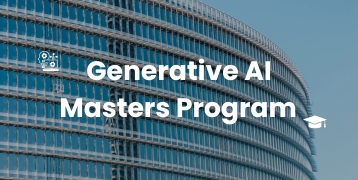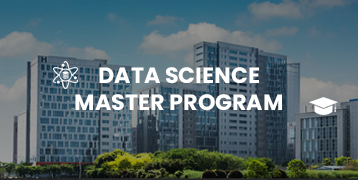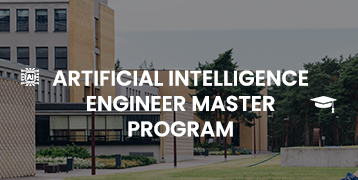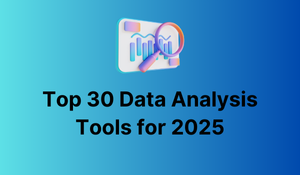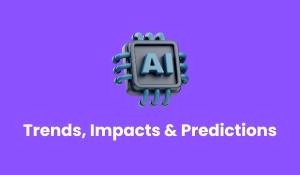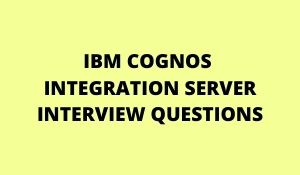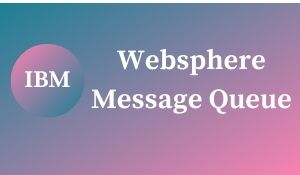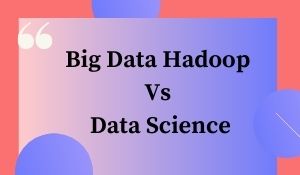
Big Data Hadoop
Big data is a collection of enormous datasets that cannot be processed by using traditional computing techniques. It is not one technique or a tool, rather it’s become a whole subject, that involves different tools, techniques, and frameworks.
Hadoop is an Apache open-source framework written in Java that permits the distributed process of enormous datasets across clusters of computers using easier programming models. The Hadoop framework application works in an environment that gives distributed storage and computation across clusters of computers. Hadoop is meant to be scaled up from a single server to thousands of machines, each offering local computation and storage.

The Benefits of Big Data are:
•Utilize the information kept on social networks like Facebook, the marketing agencies are learning about the response for their campaigns, promotions, and other advertising media.
•Make use of the information in social media like preferences and product perception of their consumers, product companies, and retail organizations are planning their production.
•Utilize the information regarding the previous medical history of patients, hospitals are providing better and quicker service.
The Benefits of Hadoop are:
•Hadoop is highly scalable
•Hadoop also offers a cost-effective storage solution for businesses’ exploding data sets.
•It is so flexible
•Resulting in much faster data processing.
•Resilient to failure
Hadoop Architecture
MapReduce: MapReduce may be a parallel programming model for writing distributed applications devised at Google for the systematic process of enormous amounts of information (multi-terabyte data sets), on massive clusters (thousands of nodes) of commodity hardware in a reliable and fault-tolerant manner. Then, the MapReduce program runs on Hadoop which is an Apache open–source framework.
Hadoop Distributed File System: The Hadoop Distributed File System (HDFS) relies on the Google File System (GFS) and provides a distributed file system that is designed to run on commodity hardware. It has several similarities with existing distributed file systems. However, the variations from different distributed file systems are more significant. It is extremely fault-tolerant and is designed to be deployed on low-price hardware. It gives high throughput access to application information and is appropriate for applications having massive datasets.
Data Science
Data Science is about extraction, preparation, analysis, visualization, and maintenance of information. It is a cross-disciplinary field that uses scientific methods and processes to draw insights from data.
The various Benefits of Data Science:
•It is in Demand
•Abundance of Positions.
•A Highly Paid Career
•It is Versatile
•Data Science Makes Data Better
•Data Scientists are Highly Prestigious
•No More Boring Tasks
•Data Science Makes Products Smarter
•Data Science can Save Lives
•Data Science Can Make You A Better Person
Key Differences between Data Science and Big Data Hadoop
| Dimension | Data Science | Big Data |
|---|---|---|
| Tools and Technologies | R, RStudio | Apache Hadoop, cloudera Hadoop Distribution, R, Tableau |
| Statistical concepts | Descriptive Statistics, Hypothesis Testing, ANOVA | Descriptive Statistics |
| Basic Analytics | Data Analysis, Manipulation, and visualization | Exploratory Data Analysis |
| Advanced Analytics | Regression Models, clustering, Decision Trees, Time Series Techniques, Text Analytics | More Business Intelligence focused, Reporting, Dashboards |
| Big Data Processing | Hadoop overview, MapReduce programming in R syntax, RHadoop Integration | HDFS, MapReduce, Hive, HBase, Pig, Sqoop, Flume, Java MapReduce programming, RHadoop Integration, MapReduce programming in R syntax |
| Case studies | Telecom churn prediction, Car sale prediction, Credit default Classification, Marketing Mix modeling, Store clustering, Twitter Analytics | Text Analytics using Twitter, Flight delay optimization using airline data, Clickstream Analytics, and Financial Analysis on Stock Data |
Big Data Hadoop and Data Science as a Combined Approach:
The big data approach cannot be easily achieved by using traditional data analysis methods. Instead, unstructured data requires specialized data modeling techniques, tools, and systems to extract insights and information as needed by the organizations. Data Science is a scientific approach that applies mathematical, and statistical ideas and computer tools for processing big data. Data science is a specialized field that combines multiple areas such as statistics, mathematics, intelligent data capture techniques, data cleansing, mining and programming to prepare and align big data for intelligent analysis to extract insights and information.
Presently, all of us are witnessing an unprecedented growth of information generated worldwide and on the web to result in the concept of big data. Data science is quite a challenging area due to the complexities involved in combining and applying different processes, algorithms, and complex programming techniques to perform intelligent analysis in large volumes of data. Hence, the field of data science has evolved from big data, and data science is inseparable. On the other hand, Big Data majorly deals with processing and analyzing massive amounts of data using Hadoop technology.

This concept refers to a large collection of heterogeneous data from different sources and is not usually available in standard database formats. We are usually aware that Big Data Encompasses all types of data namely structured, semi-structured, and unstructured information which can be easily found on the internet.
Conclusion
Both technologies are unique in their features. If you are looking to build a stronger expertise around implementing the statistical and predictive analytics techniques then Data Science would be the right choice whereas Big Data would benefit those looking to become competent in processing the data using Hadoop and also work with R and Tableau to create Business Intelligence.
👉 Related Articles:
🎯 About Big Data vs Internet Of Things
🎯 What is Big Data Analytics? A Complete Guide to Big Data Analytics
🎯 Big Data in Internet Of Things
🎯 What is MapReduce in Big Data?
🎯 Big Data vs Data Science vs Data Analytics
🎯 Detail Information about Big Data in AWS
🎯 Everything You Need To Know-Talend Big Data
🎯 Hadoop Vendors Leading the Big Data
🎯 Big Data solutions for SQL Server
🎯 Streaming Big Data with Apache Spark
🎯 BIG DATA TALEND Interview Questions and Answers
🎯 Big Data Mapreduce Interview Questions and Answers
🎯 Big Data&Hadoop Interview Questions and Answers

